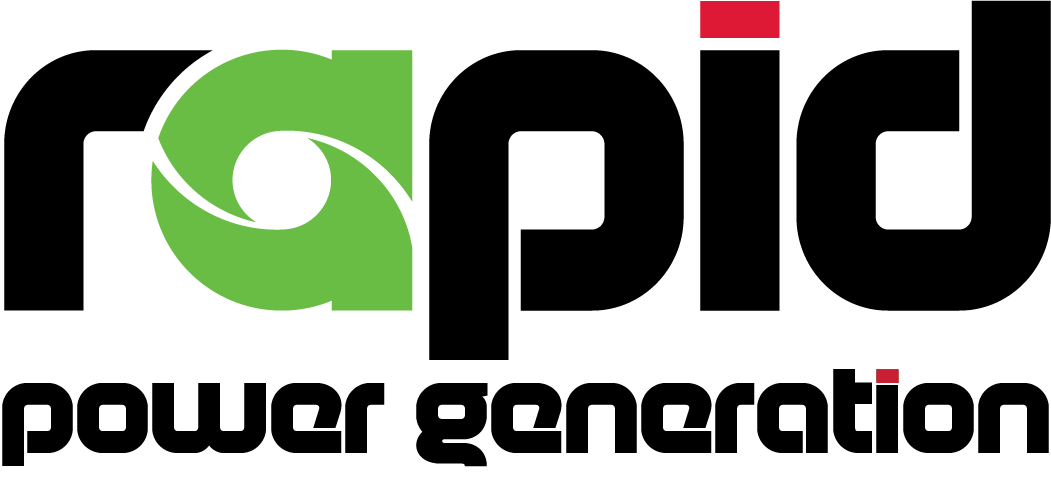Using mobile continuous concrete mixing plant, manufactured by Rapid International Ltd, based in Northern Ireland, contractors such as Complete General Construction and Nickolas Savko & Sons, Inc, in Ohio, USA are increasingly switching over to Roller Compacted Concrete (RCC) applications for highways and pavements.
The city of Columbus, Ohio has experienced a rapid growth in recent years in the use of roller-compacted concrete (RCC) for the city streets and highways since RCC construction procedures were first introduced to the area in 2001. Using Rapid International mobile continuous concrete mixing plant to mix the concrete and high density pavers and rollers to lay it, Roller Compacted Concrete is becoming a popular choice for projects due to its strength, the speed of its construction and its economic value in comparison to asphalt.
For many years the city of Columbus has made use of “composite” pavement designs, where concrete is used as the pavement base, and asphalt for the pavement surface, but with the introduction of RCC, dozens of successful projects have been completed.
This month contractors, Complete General Construction, have commenced work on a highway network in the city. Using a mobile continuous mixing plant, supplied by Rapid International USA Inc, along with specialized paver and vibratory rollers, they have started laying the Roller Compacted Concrete which will provide long serviceability with minimal maintenance.
Why Choose Roller Compacted Concrete (RCC) over Asphalt?
Although Roller Compacted Concrete has the same ingredients as conventional concrete; cement, water, and aggregates, it is a drier mix and stiff enough to be compacted by vibratory rollers.
High Strength
It has a high flexural strength (500 to 1000 psi) (3.5 MPa to 7.0 MPa) meaning it can support heavy, repetitive loads without failure and spans localized soft subgrade areas, which reduces maintenance costs and down time.
It also has a high compressive strength (4,000 to 10,000 psi) (28 MPa to 69 MPa) allowing it to withstand high concentrated loads and impacts from heavy industrial, military, and mining applications. Its high density and low absorption provides excellent durability, even under freeze-thaw conditions and eliminates seepage through pavement.
No Need for Forms or Finishing
As RCC is constructed with no joints, there is no requirement for steel reinforcing or dowels, forms or finishing or sawed joints. Construction is speedy and simplified – reducing costs, minimizing labour and eliminating the need for preventative measures taken to minimize corrosion of reinforcing steel.
Tough, Fast and Economical
RCC itself is as economical and simple to use as asphalt. Companies like Complete General Construction and
Nickolas Savko & Sons, Inc., who are involved in many Roller Compacted Concrete projects, recognise the life-cycle cost savings you get when using concrete as opposed to asphalt.
No Pot Holes
The high strength of RCC pavements eliminates common and costly problems traditionally associated with asphalt pavements. The RCC has the durability to resist freeze-thaw damage. The pavements will not deform under heavy, concentrated loads and do not deteriorate from spills of fuels and hydraulic fluids. They will also not soften under high temperatures.
Stages of RCC and Use of the Mobile Continuous Mixing Plant
The Rapidmix mobile continuous twin shaft plant is a key machine to ensure that RCC projects are carried out on time and within budget. It produces high outputs of up to 400 and 600 tonnes from both models. It provides the mixing efficiency needed to evenly disperse the relatively small amount of water used in the mixing of Roller Compacted Concrete. Dump trucks then transport the Roller Compacted Concrete and discharge it into a paving plant, which places the material in layers up to 10 inches (250 mm) thick and 42 feet (13m) wide.
Compaction begins immediately after placement which is how the concrete attains its level of smoothness, density, surface texture and strength. This stage continues until the density requirements are met.
The final stage is curing where moisture is applied, allowing hydration of the concrete, thus causing it to harden and strengthen.
The machine can work on a variety of applications such as bentonite landfill sealing, dam construction, contaminated soil stabilisation as well as cement treated base for road construction.
Applications of Roller Compacted Concrete
Due to its superb strength, Roller Compacted Concrete can be used in industrial applications where strong pavement is required to stand up to massive loads and specialized equipment. Airport runways and aprons are well suited to Roller Compacted Concrete. Also suited to RCC are: Parking, storage and warehouse floors, Container Storage & Handling, Port Pavements and much more.
Contractors Nick Savko & Sons, Inc. and Complete General Construction
To date, Nick Savko & Sons, Inc. has completed over 500 roller compacted concrete (RCC) jobs, since first introducing RCC pavement in the central Ohio market in 2001.
Complete General Construction, based in Ohio USA, specializes in highways, bridges, underground and paving. They have a long history in highway construction and have established working relationships with state and local governments.
Manufacturers Rapid International Ltd
Rapid International machinery is manufactured at the main plant in Tandragee, Northern Ireland and has recently celebrated 40 years in business. Accompanying the existing continuous mixing plants, the Rapidmix 400C and 600C, Rapid has expanded the mobile range with a series of mobile batching plants, the Rapidbatch. This range offers batch production of ready mixed concrete combined with full mobility and cost effectiveness for the client. Plants are completely self-contained allowing them to be used for on-site mixing in remote areas, giving savings in time, money and carbon emissions. Rapid also manufacture concrete pan, planetary and twin shaft mixers for the ready-mix and precast industries.
Rapid International USA Inc
Based in Commerce City, Colorado, Rapid International USA is the main distributor for Rapid mobile plant in the USA. With a large network of dealers spread out around the USA and a wealth of experience and expertise, customers can be guaranteed a reliable machine which will produce a quality material and a support service which is second to none.
Notes for Editor:
Rapid International Ltd
Based in Northern Ireland, Rapid International has recently celebrated 40 years in business. Accompanying the existing continuous mixing plants, the Rapidmix 400C and 600C, Rapid has expanded the mobile range with a series of batching plants, the Rapidbatch 70 and 120. This range offers batch production of ready mixed concrete combined with full mobility and cost effectiveness for the client. Production rates of 55 to 160m3 per hour are available with these plants. Plants are completely self-contained allowing them to be used for on-site mixing in remote areas, giving savings in time, money and carbon emissions.

